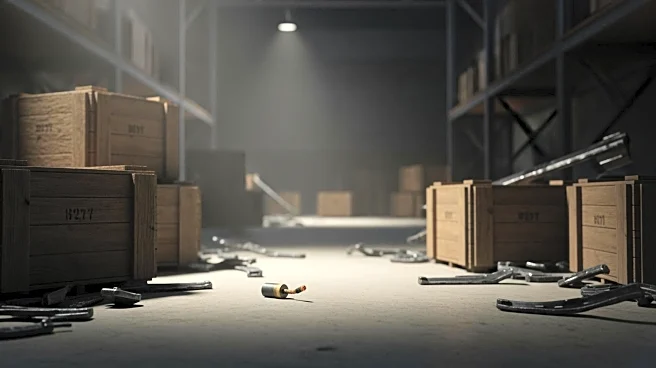What's Happening?
The Lebanese Army is reportedly facing a shortage of explosives, raising concerns about Hezbollah's potential rearmament. Despite efforts by the Lebanese Army to destroy Hezbollah's weapon caches, verification
of disarmament remains insufficient. This situation has led to heightened concerns from Israel, which is wary of Hezbollah's military capabilities. The US has set a deadline for Lebanon to control the weapons, but doubts persist about Lebanon's ability to manage the situation effectively.
Why It's Important?
The potential rearmament of Hezbollah poses significant security risks in the Middle East, particularly for Israel and US interests in the region. Hezbollah's military capabilities have long been a point of contention, and any increase in their arsenal could destabilize the region further. The US deadline for Lebanon to control the weapons underscores the international pressure on Lebanon to ensure regional stability. Failure to verify Hezbollah's disarmament could lead to increased tensions and potential conflict, affecting diplomatic relations and security strategies.
What's Next?
With the US deadline looming, Lebanon faces pressure to demonstrate effective control over Hezbollah's weapons. The international community, including the US and Israel, will likely continue to monitor the situation closely. Potential diplomatic interventions or sanctions could be considered if Lebanon fails to meet the expectations set by the US. The outcome of this situation could influence future US foreign policy decisions in the Middle East.
Beyond the Headlines
The situation highlights the complex dynamics of regional politics and the challenges of enforcing disarmament in volatile areas. The ethical implications of military intervention and the role of international oversight in sovereign nations are critical considerations. Long-term, this could affect Lebanon's political landscape and its relations with neighboring countries.










